Chinese nuclear missile DF-41 © People’s Liberation Army
“The atom bomb is a paper tiger,” said Mao Tse-Tung in an interview in 1946, “which the United States reactionaries use to scare people.” Mao then dismissed all reactionaries as “paper tigers” because nobody in their right mind would ever choose to fire an atom bomb for real, just in case your chosen enemy fires one back. However, the threat of a nuclear weapon heading their way has certainly scared a lot of people. I remember being taught what to do if an air raid siren sounded when I was attending primary school. The advice mainly consisted of saying “get under the desks”. Given that these were primary school desks and very small, it would have been rather difficult. It would also have been a pretty feeble – indeed, completely pointless – defence, too, so a better idea might have been to have fun and gorge yourself on sweeties in whatever little time you had left. If you’re a tiny bit older, there might be other things you’d rather squeeze into your remaining few moments. Neither of these ideas would have provided any sort of protection, of course, but nor would hiding under an elderly wooden desk that was too small to conceal you.
It would almost certainly have been a case of “Goodnight, Vienna”, which in English usually means “that’s it, no more, there’s nothing left”, a sort of “end of the world” expression whose actual origins are somewhat shrouded in mist. It first appeared in 1932, before atomic or nuclear weapons existed anyway. Let’s just agree that if the East or the West were to unleash such horrors on their enemies that would almost certainly put an end to whatever conflict was involved, as well as putting an end to you, your home and family, the man next door, your dog or cat, your local supermarket, and your political leaders. Everything and everyone, in other words. In real terms, I suppose, that means there’s not much point in trying to survive; who wants to be the last person left alive and in isolation, like Daniel Defoe’s “Robinson Crusoe”, stranded om a tropical island all alone? Better in any case than being eaten by the bear that he and his friend Friday meet, but which turns out to be ticklish.
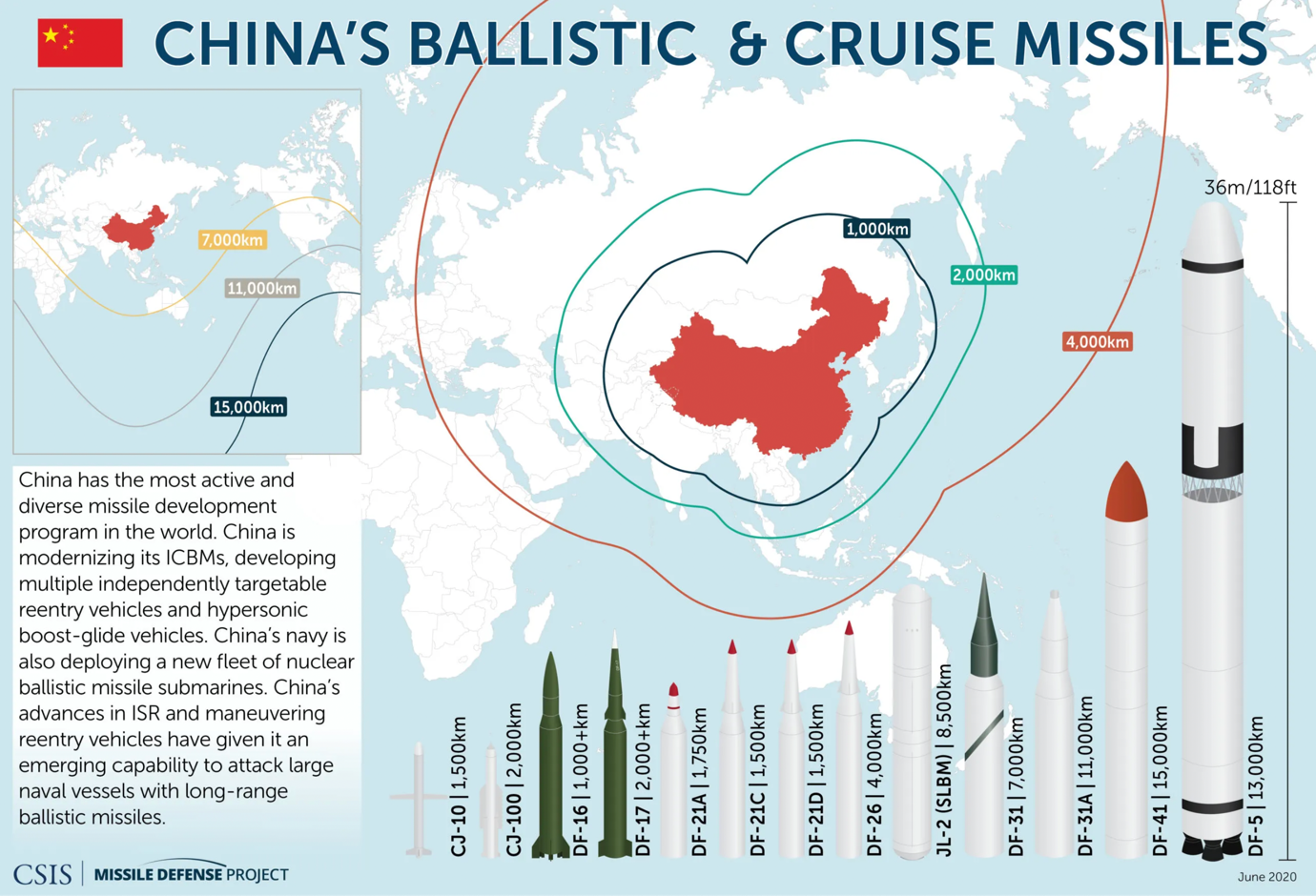
Now, of course, China is a very important and technologically well-advanced nation. China will not join the sanctions war the West is applying to Russia, but neither can it seriously choose to join with Russia in baiting the West. Chinese President Xi Jinping decided to defy Western sanctions by making an official and rather formal visit to Moscow. It seems to have been a fact-finding mission underneath all the pomp and ceremony: an opportunity to find out how a once-mighty and extremely large country is getting by, despite western sanctions. Both Russia and China are facing Western hostility, if for totally different reasons. Even so, the sanctions against them have a unifying effect. China is keen to find out what effect the sanctions regime is having on Russia, without experiencing it. Xi wants to gauge Moscow’s stability under its enforced isolation, cut off from the world’s industrial, cultural, and financial sectors. It almost mirrors what Washington has been trying to do to Beijing, turning away Chinese companies and denying them access to Western technologies, as well as markets. Finding new ways to help each other would seem to be a much more productive way to move forward (unless you’re into tickling bears, that is).
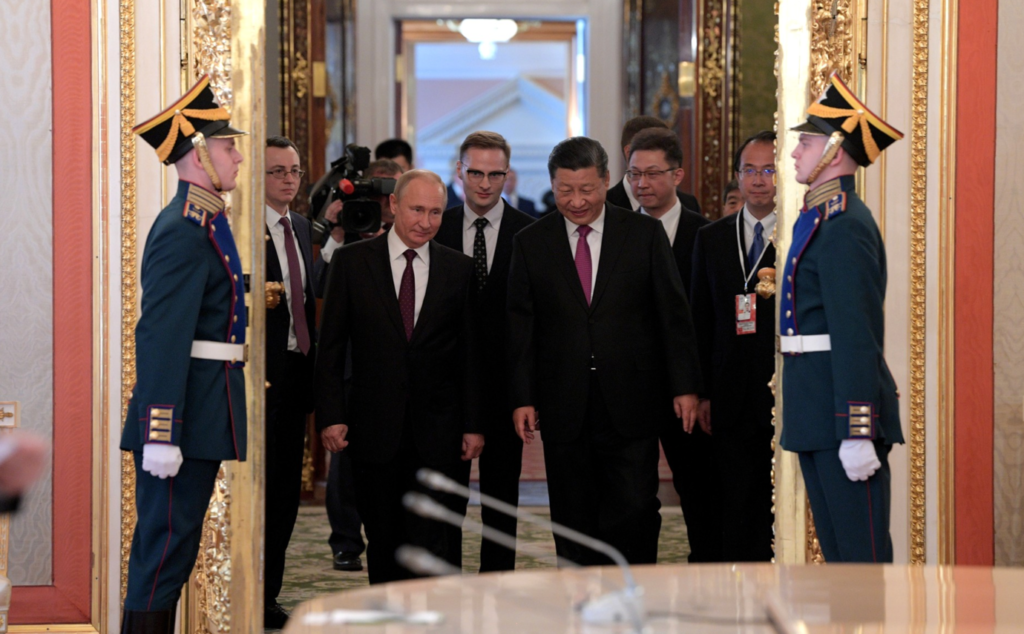
China is still under United States embargo, albeit not as all-embracing as the one imposed on Russia. In China’s case, it involved new export controls on microelectronics to China, whilst also adding an additional 110 Chinese companies to its list of those facing at least partial sanctions.
| AMBITION AND DISINTEREST
Where does one find true neutrality in a war? Well, clearly not in the capitals of globally important powers, such as the United States, Russia or China. China was deeply concerned to discover that American documents list both Russia and China as “key strategic adversaries” of the United States. The EU’s wording is slightly more emollient than Washington’s, but only slightly, classing China as a “systemic rival”, rather than an adversary. Such things matter in the lexicon of words about ‘enemies’, ‘friends’, ‘rivals’ and ‘adversaries’. But if anyone was hoping for a more conciliatory approach when Xi Jinping took over the leader’s desk from Mao Zedong, they were doomed to disappointment. Just as things were back in the good (?) old days, as Tania Branigan puts it in her excellent book about the history of the cultural revolution, in which the death toll reached to between 500,000 and 2-million: [they didn’t mess about in post-war China] these days Mao’s country is “more educated, sophisticated and cynical. History does not repeat itself. But they say it rhymes.” China was driven, Branigan writes, in the truest sense: “propelled into the future by the forces at its back – and by one above all. Hundreds of millions lived out its consequences (Broken families and broken minds; an individualistic urge for survival; the rush to cut-throat capitalism; deep cynicism) without ever discussing it.” Branigan lived there as a western journalist and was able to watch its many horrors up close. And terrible it really was. There was even talk of cannibalism. In Inner Mongolia there were also allegations of mass torture.
Under Mao, it was not unknown for history to be re-written to suit the leader. As Branigan says: “Back in 2012, observers understood his talk of history to magnify his vision of the ‘Chinese dream’, bringing the nation wealth and power worthy of the annals. We should have taken it more literally.”
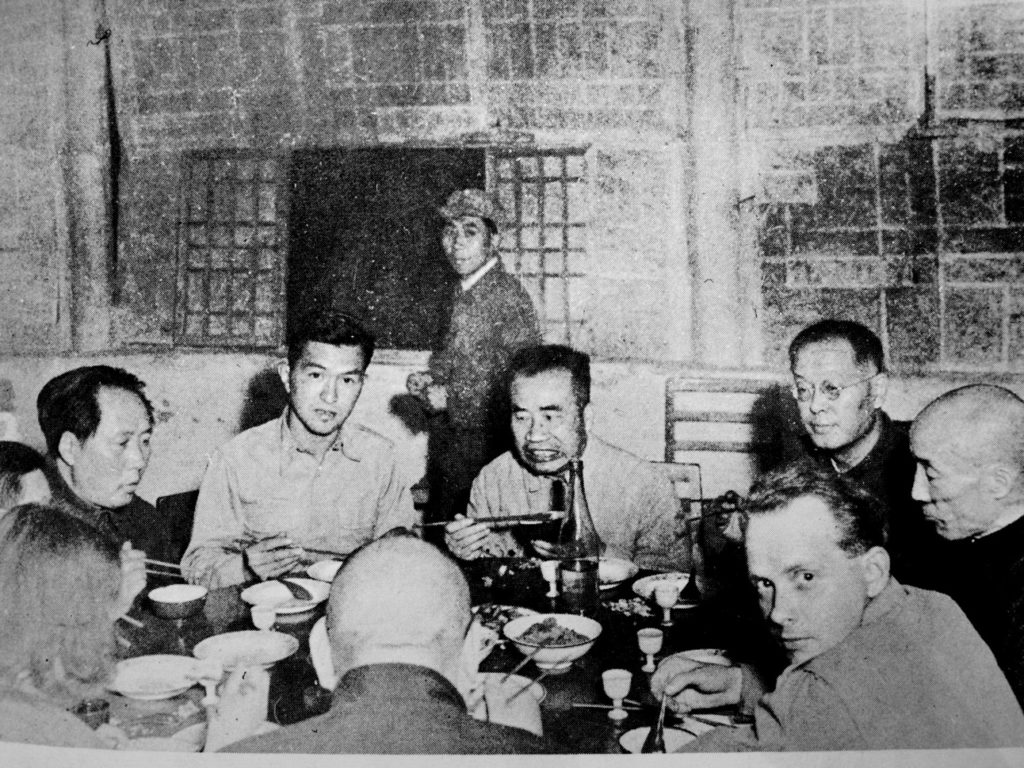
It’s how things had been done for a great many years. The British writer Robert Payne wrote about how rival generals and political leaders were pushing their own (very different) visions of the future. Payne attended a small private dinner at Yenan in July 1946 with Mao and his wife of that time, who entered, greeting everyone with the words “Nin hao”., which means “How are you?”. Payne was not certain he’d be allowed to meet Mao, who was known to be the intellectual leader of China’s Communists. He was also a notable poet and Payne quotes one of his works, “The Snow”, in full in his book Eyewitness. I think it’s a good poem, but I’m not a literary critic, so who am I to judge? Mao hated his poetry, according to Payne, and told him he had written “The Snow” in an aeroplane, on his way to Chungking to meet with Chiang Kai-shek. I especially like the last four lines:
“The Emperors Shih Huang and Wu Ti were barely cultured,
The Emperors Tai Tsung and Tai Tsu were lacking in feeling.
Genghis Khan knew only how to bend his bow at eagles.
These all belong to the past – only today are there men of feeling.”
When the dinner was over, Mao walked each of his guests individually to the door to see tham out and say “goodbye”.
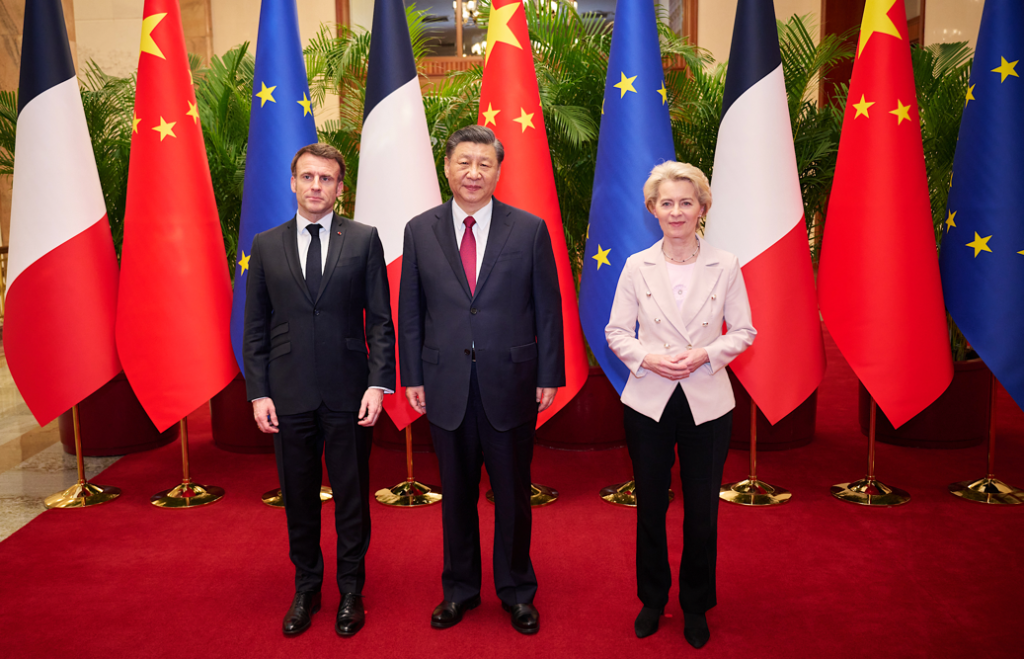
It’s worth remembering that not very long after writing this thoughtful and slightly melancholy poem, Mao launched the Cultural Revolution, in which hundreds of thousand would die. It did, however, progress towards a much more modern future, as she reported to her newspaper, The Guardian, once she’d arrived in Beijing in 2008: “Ordinary lives were crammed with incident, jostled into action. Week by week my notebooks filled with flamboyant tycoons and dogged activists, factory girls and farmers; with explosions, corruption scandals and China’s first gay beauty pageant.” The industrial revolution that hit Britain in the 18th and 19th centuries must have brought similar shocks, but in this case it was happening with lightning speed. Objections to the pace of change were few and far between. Nobody seriously raised objections to the fulfilment of Mao’s great dream.
In a sense, history is repeating itself. Now world leaders are beating a path to Xi Jinping’s door, trying to establish friendship even if they don’t all know what that means. The list of recent visitors reads like a guest list at an EU summit: Ursula von der Leyen, President of the European Commission; Charles Michel, President of the European Council; Olaf Scholz, Chancellor of Germany; Pedro Sanchez, Spain’s Prime Minister; French President Emmanuel Macron; the list goes on and on, leaving the clear impression that there is some very heavy lobbying going on.
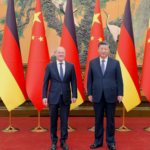
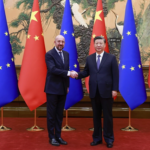
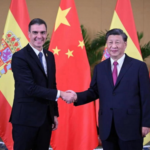
The French press mainly concludes that Macron wants to engage with Xi because of differences over the war in Ukraine and because Sino-European relations in general have been deteriorating, which helps nobody (although Russian leader Vladimir Putin may secretly cheer about it; he likes to see confusion spreading). The West, including the European Union, of course, wants very much for China to take its side in any disagreement with Putin. As an Élysée Palace spokesperson put it to a press conference, just before Macron’s departure: “China is the only country in the world capable of having an immediate and radical impact on the conflict, in one direction or the other.” Striking the right balance between trade and geopolitics is never easy either. But up to now, at least, Putin has shown no sign of halting his invasion or showing mercy to the Ukrainians, and nor has Xi Jinping given any really clear sign that he’s on anyone’s side in Russia’s war there. Stay on the outside and stir the pot from time to time seems to be his policy.
| FRIENDLY ENEMIES OR PRICKLY FRIENDS?
Meanwhile, tensions between China and the United States seem to be getting ever-more tense.
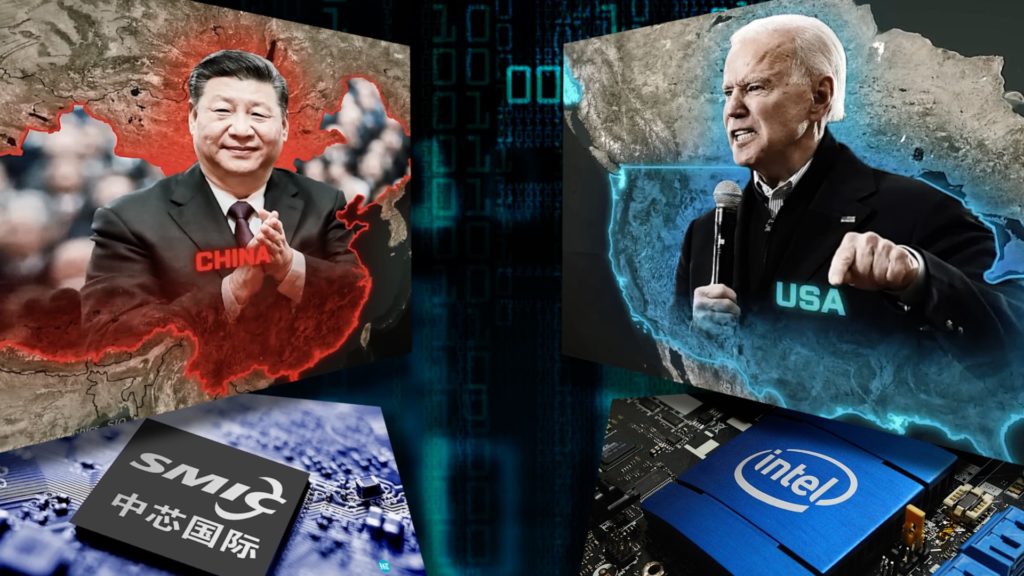
China accuses America of being a bully and there is serious talk of the risk of a war. Xi believes the West is in decline and doesn’t like the United States, nor its friends. Xi is certainly very unhappy about the ban on exporting American-designed microchips to China. Things have changed in Beijing’s corridors of power. Xi is unlikely to step aside for anyone or anything, which means he’s likely to remain in power indefinitely. His visit to Moscow for talks with Putin is proof of his intent: a world order that favours his type of unrestricted personal one-man governance without any form of restraint. The world has seen a few such leaders down the years and they are not good, using their limitless powers merely to cement further their personal power. The Economist suggested of Xi that “his goal is to build an alternative world order that is friendlier to autocrats.”
The West is not in the habit of putting itself on a war footing with a view to taking out those it sees as its enemies. It can, however, impose sanctions or simply stop permitting exports to its rivals of goods that they and their industries need. China views this as unfair bullying by a much richer country. It’s vitally important, however, that trade in less sensitive goods continues to flourish and grow. That keeps both sides sitting around a table and enjoying the financial benefits that such a relationship brings. But the rivalry continues and the protagonists will inevitably seize whatever looks like offering an advantage. European Commission President Ursula von der Leyen has accused China of seeking to exploit Putin’s current weakness to increase its own geopolitical influence. “Far from being put off by the atrocious and illegal invasion of Ukraine,” she said, “President Xi is maintaining his ‘no-limits friendship’ with Putin’s Russia.” Looked at critically, however, it would seem we’re all at war. It’s a war of words, however, so let’s hope we can keep it that way. As the old children’s playground saying goes: “Sticks and stone may break my bones but words can never hurt me”. They can, of course, but they don’t knock down buildings or wipe out entire communities.
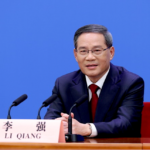

The South China Morning Post has pointed out, though, that in a recent telephone conversation, China’s premier, Li Qiang called on Russia’s Prime Minister, Mikhail Mishustin to help him to “deepen practical cooperation” between the two countries, whilst acknowledging that the West is watching closely Beijing’s “tilt towards Moscow” as the newspaper put it.
Washington has kept relatively quiet about China and Russia becoming more pally, but this is unlikely to last; Washington cannot tolerate Beijing and Moscow becoming too close in a friendship that is inevitably hostile towards Western thinking.
The Chinese are very well aware of the dangers of conflict. Take the case of Chinese Communist General Chu Teh, who in the late 1940s invited Robert Payne to take tea with him. Payne talked about the enormous scale of a battle at Shihpingchieh, which had newly ended after much indiscriminate bloodshed. He wrote that Chu Teh was clearly adored by his soldiers, unlike the Kuomintang generals, despised for their uncaring cruelty. Chu Teh was not like that at all. The battle had been fought because the Kuomintang considered their forces unbeatable by their scruffily dressed enemy. They could not imagine losing to the Communists. The Kuomintang were very cruel and killed all Communists who fell into their hands. “As for us, we have no need to kill prisoners,” Chu Teh told Payne. “We don’t want a war, but when their troops attack us, what else can we do except fight back? There can be no peace with this fascist dictatorship.” He told Payne that the Chinese people were helpless in the face of a new civil war. “Then there is no hope,” Payne said to him in the form of a question, “the war will go on for ten more years?”
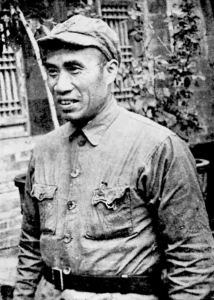
“There will be war unless there is a coalition government,” Chu Teh responded. “We must have democracy, and democracy doesn’t mean secret police, dictatorships, tortures, murders and the disappearance of people everywhere.” Today’s China – and Russia – could do with people like Chu Teh in charge. Are there any like him still about?
As it is, von der Leyen and Macron travelled to China with different agendas. Lots of different agendas. Von der Leyen, being an Atlanticist, had a slightly differing agenda from Macron. For one thing, she was representing the different views of 27 EU member states that by and large don’t agree with each other. Additionally, committed Atlanticist though she is, she’s under pressure from Washington to present a united front. Macron brought a range of French business leaders with him in a bid to sell France and its multifarious skills to the Chinese. In today’s Europe, she can’t afford to display any disparity in Europe’s approach (or should that be ‘approaches’) to China. By comparison, Macron faced an easier task: one simple pro-French message and a background hope that his charm can win over Xi into a more pro-Western stance where Russia is concerned. A fair amount of flattery and flannel may be required. Of course, it’s a skill Macron possesses in droves. His message to Xi, perhaps should be: “let them eat croissants”.
The world is poised closer to the edge than its leaders would like, with only the French President and the President of the European Commission standing between careful diplomacy and bloody war. In their favour is the fact that nobody wants (and nor can they afford) a large-scale war. The villain in this particular piece, of course, is Putin: a despot who actually seems to want a war, mainly because nobody else does. A reluctance to stand against him would suit him well. We’ve been here before, of course, with different protagonists arguing over different issue, but the end result could still be enough to turn much of Europe and Russia into a blood-soaked battlefield. It would benefit nobody, of course, but Putin has not so far demonstrated an awareness of that, nor the perception to prevent it.

